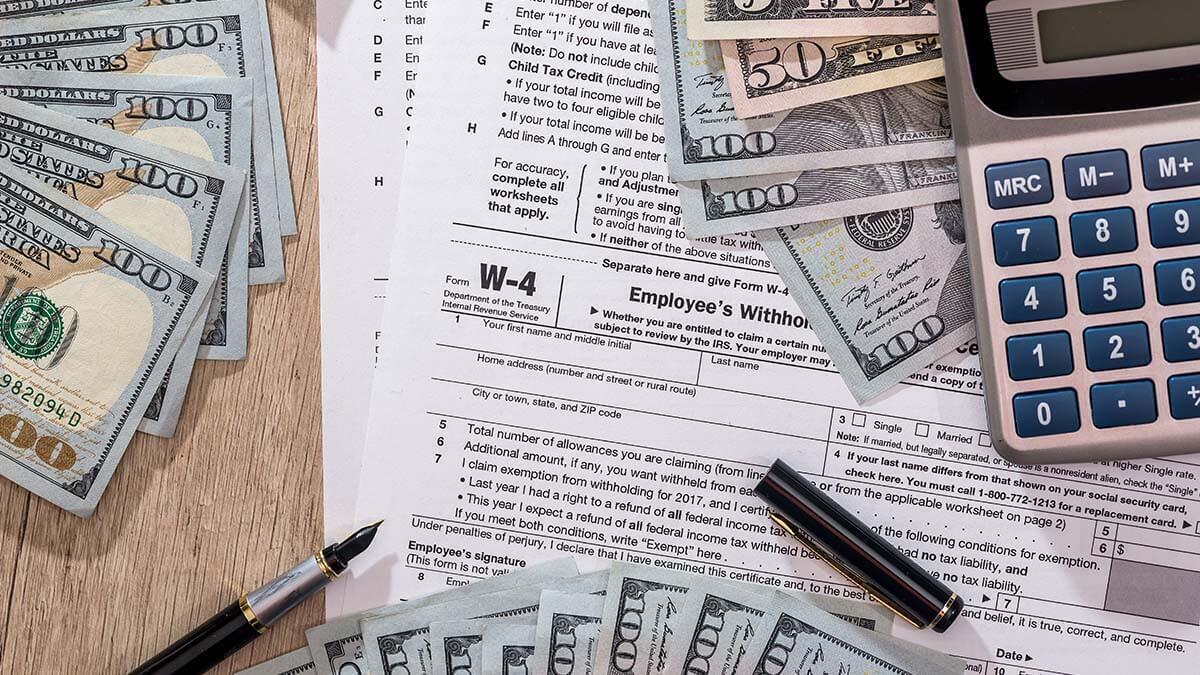Surprising Tax Requirements in Thailand Revealed
Thailand’s tax landscape can be unexpectedly complex, with a range of requirements that expats and residents alike must navigate.
Contrary to common misconceptions, Thailand is not a tax haven, and individuals are subject to personal income tax as well as VAT on goods and services.
This article delves into the intricacies of Thailand’s tax system, offering a detailed analysis of its progressive tax rates, deductions, and considerations for expatriates.
Gain a comprehensive understanding of Thailand’s unique tax requirements and avoid potential legal complications.
Key Takeaways
- Expats working in Thailand, including digital nomads, are required to pay personal income tax.
- Thailand is not a tax haven, and it is important to file taxes on liable earnings to avoid legal issues.
- Thailand has a progressive tax system, with tax rates increasing with income. The maximum tax rate is 35% for those earning over 4,000,000 baht per year.
- Expats in Thailand are classified as tax residents or non-tax residents, with different tax obligations based on their residency status.
Expat Tax Obligations in Thailand
While living and working in Thailand, expats have specific tax obligations that must be fulfilled.
Expats working in Thailand are required to pay personal income tax, regardless of whether they are working in a traditional job or as digital nomads. Thailand is not considered a tax haven, so it is important for expats to file taxes on their liable earnings to avoid any legal issues.
Everyone living in Thailand, including expats, is subject to paying taxes, such as the value-added tax (VAT) at a rate of 7% on most products and services. Additionally, taxes are also levied on specific services and products, such as condo tax and car tax.
It is worth noting that Thailand has a progressive tax system, where tax rates increase with income. Taxes must be paid once earnings exceed 150,000 baht per year after deductions, with the maximum tax rate being 35% for those earning over 4,000,000 baht per year. This dispels the assumption that Thailand is a tax haven.
Personal income tax is primarily applied to employment income, with a flat 15% rate for certain conditions.
Tax Residency and Withholding in Thailand
Furthermore, expats in Thailand are classified as tax residents or non-tax residents. This classification determines their tax obligations and requirements in the country.
Understanding tax residency and withholding in Thailand is crucial for expats to ensure compliance with the tax laws. Here are three key points to consider:
- Tax residency is determined by the number of days an individual spends in Thailand. Those who reside in Thailand for 180 days or more in a calendar year are considered tax residents, while those who spend fewer days are classified as non-tax residents.
- Tax residents are required to pay taxes on income earned both in Thailand and from overseas sources, while non-tax residents are only taxed on income earned within the country.
- Thailand has a tax withholding system where a percentage of income is withheld and submitted to the Revenue Department. This applies to various types of income, including employment income, rents, prizes, service fees, dividends, interest, and royalties.
Maximizing Tax Deductions and Allowances in Thailand
To optimize tax benefits, individuals in Thailand can strategically leverage various deductions and allowances available to them.
Thailand provides a range of deductions that can be claimed to reduce taxable income. These deductions include expenses related to education, healthcare, life insurance, and contributions to approved provident funds. By carefully documenting and claiming these expenses, individuals can significantly reduce their tax liability.
Additionally, Thailand offers various allowances such as personal allowances, child allowances, and spouse allowances. These allowances can further decrease the amount of taxable income.
It is important for taxpayers to understand and utilize these deductions and allowances to maximize their tax savings. By taking advantage of these opportunities, individuals can effectively minimize their tax burden in Thailand.
Guide to Tax Filing and Documentation in Thailand
Tax filing and documentation in Thailand require careful attention to detail and adherence to specific guidelines. To ensure a smooth process, here is a guide to tax filing and documentation in Thailand:
- Use the Revenue Department E-Filing system: Taxes can be filed online through this system, which guides users through the steps to input income, deductibles, and determine tax liability or return.
- Obtain a Tax ID: Tax identification numbers must be obtained to file tax returns. They can be applied for at the nearest revenue office with necessary documents.
- Seek professional assistance: While employers may assist in tax filing, it is recommended to seek assistance from Thai colleagues or an accountant. Non-tax residents should especially consider utilizing the services of a Thai accountant for tax filing.
Double Taxation Agreements and Considerations in Thailand
Over 50 countries have established double taxation agreements with Thailand to prevent individuals from being taxed twice. These agreements are designed to eliminate the potential burden on taxpayers who earn income in multiple countries.
Under these agreements, individuals can avoid double taxation by claiming tax credits or exemptions in one country for taxes paid in the other country. It is important for individuals to understand the specific terms and provisions of the double taxation agreements between Thailand and their respective countries.
This includes knowing which types of income are covered, the applicable tax rates, and the procedures for claiming tax relief. Consulting with a tax advisor or accountant is recommended to ensure compliance with the double taxation agreements and to optimize tax planning strategies.
Taxation of Pensions in Thailand: What You Need to Know
The taxation of pensions in Thailand depends on various scenarios, but it is important for individuals to understand the specific rules and regulations surrounding this topic. Here are three key points to consider:
- Double taxation agreements: Thailand has agreements with over 50 countries to prevent individuals from being taxed twice on their pensions. These agreements may exempt pension income from taxation in Thailand, providing relief for retirees.
- Enforcement of pension taxation: Currently, the enforcement of pension taxation in Thailand is lax. However, starting from 2024, all foreign-earned income, including pensions, will be subject to taxation. It is crucial to stay updated with the latest tax regulations to ensure compliance.
- Exemptions for retirement visa holders: Retirees holding a retirement visa may be exempt from income tax on their pensions. This exemption provides additional benefits for individuals choosing to retire in Thailand.
Understanding the rules and regulations surrounding the taxation of pensions in Thailand is essential for retirees to effectively plan their finances and minimize their tax liability.
Changes to Foreign Income Tax in Thailand: 2024 and Beyond
Starting from 2024, individuals earning foreign income in Thailand will be subject to new tax regulations. These changes aim to ensure that individuals are properly taxed on their global income, including income earned outside of Thailand.
The Thai government has recognized the need to update its tax laws to keep up with the evolving global economy and to prevent tax evasion. Under the new regulations, individuals will be required to report and pay taxes on their foreign income, regardless of whether it is remitted to Thailand or not.
This means that expatriates and digital nomads who earn income from overseas sources will need to carefully track and report their earnings to comply with the new tax requirements. It is important for individuals to stay informed about these changes and consult with tax professionals to understand their specific obligations and ensure compliance with the new regulations.
Frequently Asked Questions
Are There Any Specific Tax Requirements for Expats Working in Thailand as Digital Nomads?
Expats working as digital nomads in Thailand are subject to personal income tax. They must file taxes on their liable earnings to avoid legal issues. Thailand is not a tax haven, and tax rates increase with income.
How Can Non-Tax Residents in Thailand Take Advantage of Deductions and Allowances?
Non-tax residents in Thailand can take advantage of deductions and allowances to reduce their taxable income. These include personal allowances, specific allowances, and deductions for expenses like education, healthcare, and life insurance. Utilizing these can help minimize tax liability for non-tax residents.
What Are the Consequences of Not Complying With Tax Filing Requirements in Thailand?
The consequences of not complying with tax filing requirements in Thailand can include penalties, fines, and legal issues. It is important to adhere to the regulations, file taxes on time, and provide accurate documentation to avoid any negative consequences.
How Can Expats Ensure They Are Properly Utilizing Double Taxation Agreements to Avoid Being Taxed Twice?
Expats can ensure proper utilization of double taxation agreements in Thailand by consulting with an accountant familiar with international tax laws. They can provide guidance on filing requirements, necessary documentation, and strategies to minimize tax liability in both countries.
What Are the Implications of the Changes to Foreign Income Tax in Thailand Starting in 2024?
The changes to foreign income tax in Thailand starting in 2024 will subject all foreign-earned income to taxation. It is important for foreigners living and working in Thailand to stay updated with the latest tax regulations to ensure compliance.
Conclusion
In conclusion, it is clear that Thailand has its own set of tax requirements that expats and residents must adhere to.
Contrary to popular belief, Thailand is not a tax haven and individuals are obligated to pay personal income tax, VAT, and additional taxes on specific goods and services.
The country operates on a progressive tax system, with tax rates escalating with income. It is important for individuals to understand and fulfill their tax obligations in order to avoid legal complications.







